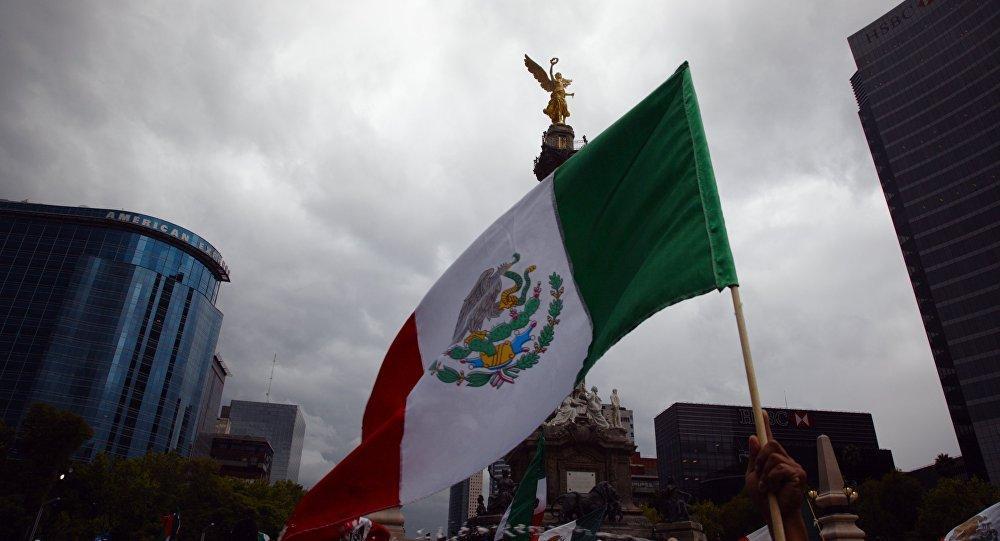
With allegations of Russian interference and a flood of “fake news,” the race for Mexico’s presidential election is shaping up to look a lot like the last one in its giant northern neighbor, the United States.
The campaign for the July 1 polls officially opens this week, but already the internet is swarming with dubious “news” stories: There are allegations of meddling by Moscow, and attention is fixated on scandal-rocked data miner Cambridge Analytica’s local activities.
Trying to get ahead of the curve, the National Electoral Institute (INE) recently signed deals with Facebook and Twitter, and is due to sign another with Google, seeking to fight the fake with the true.
“We are going to ask all the social networks to let us publish official information” on their platforms, said INE board member Enrique Andrade.
That includes broadcasts of the three presidential debates and live election results.
The social media giants “are very interested in this election after what happened in the United States and all the things that were said about them,” said Andrade.
But teaming up with them is a risky bet for the INE.
No sooner had its deal with Facebook been announced than a new scandal engulfed the social network over allegations that Cambridge Analytica, a British communications firm, had illegally harvested the data of tens of millions of U.S. users and used it to target potential voters on behalf of Donald Trump.
The INE was left scrambling to explain.
“Any allegation that we are handing over information [on Mexican voters], which the INE zealously protects, is false,” said the head of the electoral authority, Lorenzo Cordova.
Besides their deals with the INE, Facebook, Twitter and Google are all partners on a project called #Verificado2018, an alliance of 60 Mexican media outlets, universities and non-profit groups launched to check facts and flag false information about the race.
It already has plenty of work.
In a country where corruption runs deep and the truth is often murky, the “fake news” era is particularly loaded.
The leading target for doctored videos, fabricated news articles and straight up slander has so far been the presidential front-runner, veteran leftist Andres Manuel Lopez Obrador -- known simply as AMLO or “El Peje,” for a less-than-pretty fish native to his home state, Tabasco.
On the website PejeLeaks.org, articles accuse Lopez Obrador of corruption, and sinister videos paint his inner circle as a mafia of thugs.
The anonymous site’s declared goal is to show the world “the dark and unknown side” of the former Mexico City mayor, the founder of the left-wing party Morena.
In a similar vein, the Facebook page MorenaNarcos is dedicated to exposing the supposed link between Lopez Obrador and Mexico’s powerful drug cartels.
“This is the work of professionals. It’s well-funded, with no trace of who’s behind it,” said Morena’s social media coordinator, Jesus Ramirez.
Indeed, Mexico’s fake news has particularly slick production values.
The political analyst Roberto Morris says that may be an unintended consequence of the country’s strict campaign-finance laws.
A 2008 reform bars donors from funding campaign ads -- or attack ads against rival campaigns -- in traditional media.
“In Mexico the law is so restrictive that you are almost requiring this kind of thing,” he said.
Lopez Obrador’s strategy has been to turn the insults to irony.
Accused of links to Russia, he jokingly donned a Russian-style ushanka hat and called himself “Andres Manuelovich.”
But not everyone is laughing about fears that Russia could try to interfere in Mexico’s election, as it allegedly did in the United States.
Outgoing U.S. Secretary of State Rex Tillerson said during a visit to Mexico last month the country should beware of Russia’s “fingerprints” on elections around the world.
“My advice to Mexico would be pay attention,” he said.
Mexican media have reported there is an unusual amount of traffic from Russia on the INE website where Mexicans living overseas register to vote.
The electoral authority denies it has picked up anything out of the ordinary, but says it has bolstered its information security structures just in case.
Then there is Cambridge Analytica’s presence in Mexico.
The company told Bloomberg News last July that it was turning to Mexico in search of a new presidential candidate to get behind, after helping Trump to victory.
It partnered with an ad-based free airtime app called Pig.gi to mine users’ data.
But the firm said March 23 it had severed ties with the controversial company.